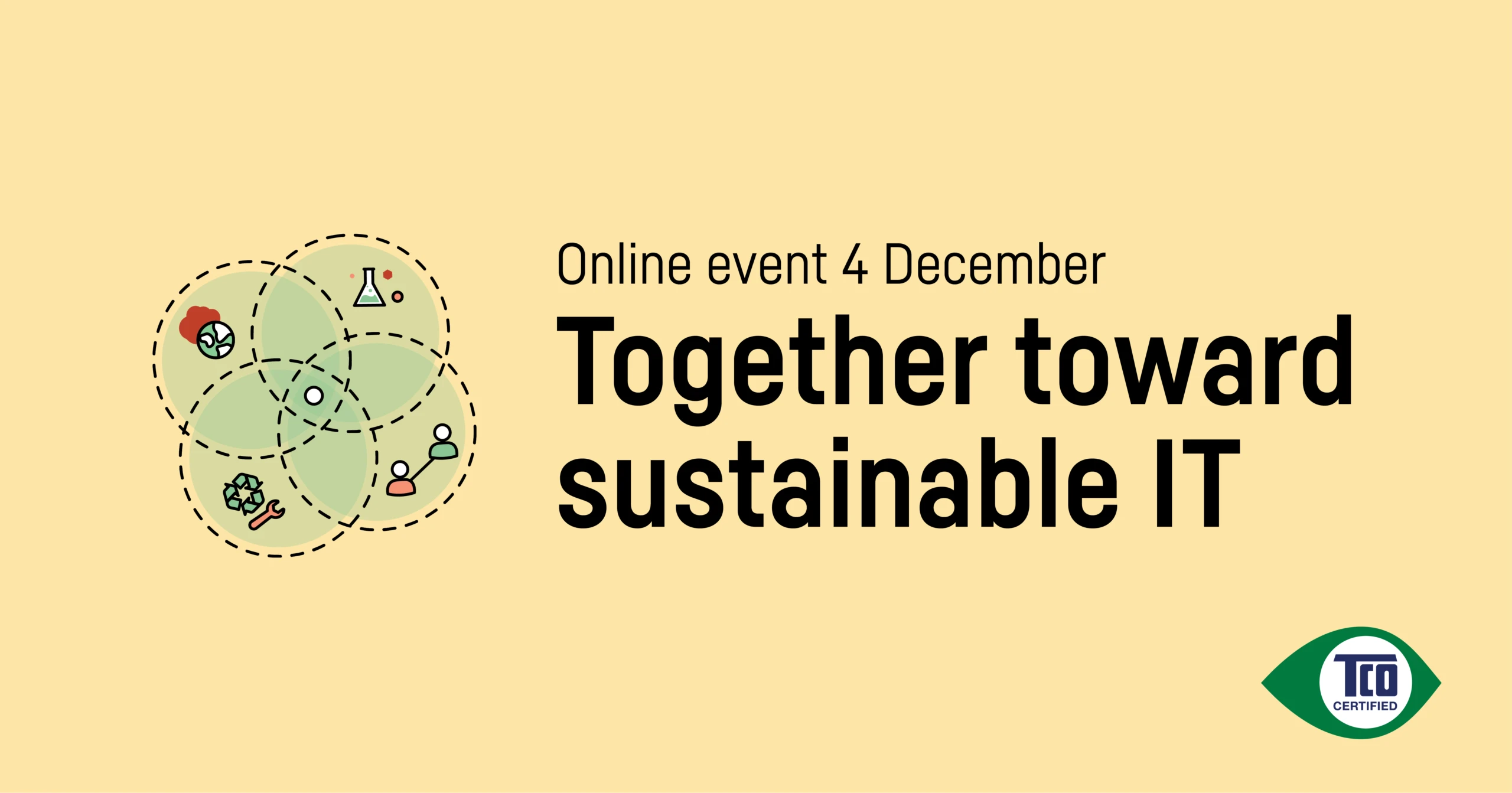Changes in sustainability legislation, purchasers at the forefront, tips for making your computer last a decade and a deep-dive in social sustainability — here is a collection of our top five most popular articles from 2023.
TCO Development’s CEO Sören Enholm practices what he preaches. Knowing that rapid consumption is one major threat to our planet, he decided to keep his notebook computer for ten years. In this article, he explains what he’s done to make it work.
How bold should your IT procurement be in terms of achieving sustainability goals? Where do you set the bar, and how do certifications help you do this? Johan Rodenhuis, Senior Sustainability Advisor at the Ministry of Economic Affairs and Climate Policy in the Netherlands, reveals how you can turn high ambitions into reality.
The interest in sustainable IT is growing. Organizations and individuals increasingly strive to reduce the negative impact of the IT products they buy and use, encouraging the IT industry to move in a sustainable direction. Clare Hobby and Andreas Nobell explain some challenges and how the shift to more sustainable practices can be made more efficiently.
Sustainability legislation in the European Union is constantly evolving. Two upcoming changes are the Sustainable Product Initiative regulation and the Green Claims directive which potentially can make it easier for buyers to make responsible, more sustainable decisions. Here’s what you need to know to get the most out of the changes.
More than audits and a code of conduct are needed to drive social sustainability in the complex IT supply chain. Stephen Fuller and Niclas Rydell explain the importance of building a structured system for continuous improvements, where independent verification, follow-up, incentives and accountability play important parts.









